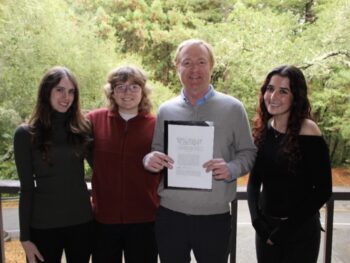By: Hillary Angelo (UC Santa Cruz), Key MacFarlane (UC Santa Cruz), and James Sirigotis (UC Santa Cruz)
April 2020

In the face of intensifying environmental crisis, and the apparent failure of national politics to address it, municipal planning has become the leading frontier of climate change action. Though the United Nations put “equity” on equal footing with economy and ecology in laying out its “three pillars” of sustainability in 1987, incorporating social equity goals into sustainability planning has remained a challenge in urban practice. “Equity”—like sustainability itself—is an amorphous goal, and a large-scale problem not obviously solved through city-scaled planning
efforts.
This report analyzes the inclusion and operationalization of “equity” in 170 California cities’ and counties’ Climate Action Plans (CAPs). California’s municipal climate action planning landscape is unique for both its size and diversity, as aggressive statewide environmental legislation has put
unique pressure on all cities—even (or especially) small and less well-resourced ones—to adopt climate/emissions plans. We conducted a content analysis of the plans, compared different cities’ approaches to equity, and how cities’ approaches relate to city characteristics such as size, social composition, and income inequality.
Citation: Angelo, Hillary, Key MacFarlane, and James Sirigotis. 2020. The Challenge of Equity in California’s Municipal Climate Action Plans. UC Santa Cruz Institute for Social Transformation, https://transform.ucsc.edu/wp-content/uploads/2020/05/Angelo_Equity_Climate_Report.pdf










 Solidarity Economics—for the Coronavirus Crisis and Beyond
Solidarity Economics—for the Coronavirus Crisis and Beyond
